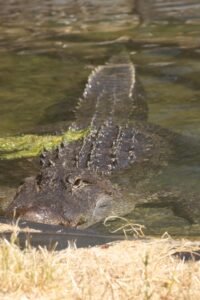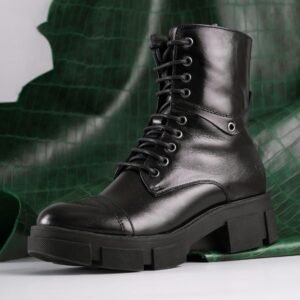Addressing Animal Welfare Concerns in Alligator Leather Production
Have you ever wondered about the welfare of animals in the production of alligator leather? Let’s explore the concerns surrounding alligator leather production and how they are being addressed.
Understanding Alligator Leather Production
Alligator leather is highly valued for its durability, texture, and unique appearance. However, the process of obtaining alligator skin involves raising alligators on farms and harvesting their hides for leather production. This has raised concerns about the welfare of these animals and the ethical implications of using their skins for luxury products.
The Farming of Alligators for Leather
Alligators are typically raised on farms specifically for their skins. These farms can range in size from small operations to large-scale facilities. The alligators are bred, hatched, and raised in captivity until they are ready for harvesting. While some argue that farming alligators helps to conserve wild populations, others question the ethics of raising animals solely for their skins.
Harvesting Alligator Skins
The process of harvesting alligator skins involves euthanizing the animals and then removing their skins. Methods of euthanasia can vary depending on regulations and practices in different regions. Some common methods include captive bolt stunning, gunshot, or electric shock.

This image is property of pixabay.com.
Animal Welfare Concerns in Alligator Leather Production
The harvesting of alligator skins raises several animal welfare concerns. The conditions in which the alligators are raised, the methods of euthanasia, and the overall treatment of the animals throughout the process are all significant factors to consider.
Living Conditions on Alligator Farms
Concerns have been raised about the living conditions of alligators on farms. Some farms may not provide adequate space, shelter, or enrichment for the animals. This can lead to stress, discomfort, and poor welfare for the alligators.
Methods of Euthanasia
The methods of euthanasia used in harvesting alligator skins can also impact animal welfare. If not done correctly, euthanasia can cause unnecessary pain and suffering for the animals. It is essential for alligator farms to follow humane practices and regulations when euthanizing the animals for their skins.
Transparency and Accountability
Transparency and accountability in the alligator leather production process are essential for addressing animal welfare concerns. Consumers and advocacy groups are increasingly calling for greater transparency in the sourcing and production of luxury goods like alligator leather. By holding producers accountable for their practices, we can work towards better treatment of animals in the industry.

This image is property of pixabay.com.
Addressing Animal Welfare Concerns in Alligator Leather Production
Efforts are being made to address animal welfare concerns in alligator leather production. From improved farming practices to certification programs, various approaches are being taken to ensure the welfare of animals involved in the industry.
Certifications and Standards
Certification programs like the Leather Working Group (LWG) aim to promote sustainable and ethical practices in the leather industry, including alligator leather production. By adhering to set standards and undergoing audits, producers can demonstrate their commitment to animal welfare and responsible sourcing.
Improved Farming Practices
Some alligator farms have implemented improved farming practices to enhance animal welfare. This includes providing larger enclosures, better nutrition, and enrichment for the alligators. By focusing on the well-being of the animals, producers can improve both the quality of the skins and the ethical considerations of the industry.
Alternative Materials and Practices
In response to growing concerns about animal welfare, some designers and manufacturers are exploring alternative materials and practices for leather production. This includes the use of vegan leather alternatives or sustainable materials that do not involve animal harm. While alligator leather remains in demand for its unique qualities, these alternatives offer a more ethical choice for consumers.

This image is property of pixabay.com.
The Future of Alligator Leather Production
As the discussion surrounding animal welfare in alligator leather production continues, the industry is facing pressure to adapt and evolve. By prioritizing animal welfare, sustainability, and transparency, the future of alligator leather production may look quite different from its current practices.
Innovation and Technology
Advancements in technology and innovation are playing a role in shaping the future of alligator leather production. From more humane euthanasia methods to sustainable farming practices, technology can help improve animal welfare standards and reduce the environmental impact of the industry.
Collaborations and Partnerships
Collaborations between stakeholders in the fashion industry, conservation organizations, and animal welfare advocates can also drive positive change in alligator leather production. By working together towards shared goals, we can create a more ethical and sustainable future for alligator leather and other luxury goods.
Consumer Awareness and Choice
Ultimately, consumer awareness and choice play a crucial role in shaping the future of alligator leather production. By educating consumers about the ethical considerations of their purchasing decisions, we can empower them to make more informed choices. Whether it’s opting for alternative materials or supporting brands with transparent and ethical practices, consumers have the power to drive change in the industry.
In conclusion, addressing animal welfare concerns in alligator leather production is a complex and multifaceted issue. By understanding the challenges, advocating for change, and supporting ethical practices, we can work towards a more sustainable and humane future for alligator leather and the animals involved in its production. The choices we make as consumers, designers, and industry stakeholders can make a significant impact on the welfare of animals and the overall sustainability of the fashion industry. Let’s continue the conversation and strive for a more ethical and compassionate approach to luxury goods production.



